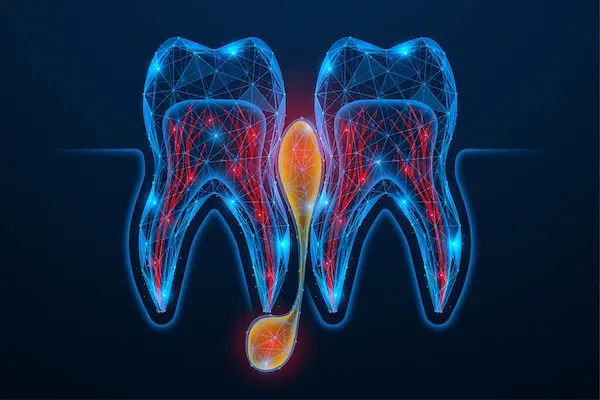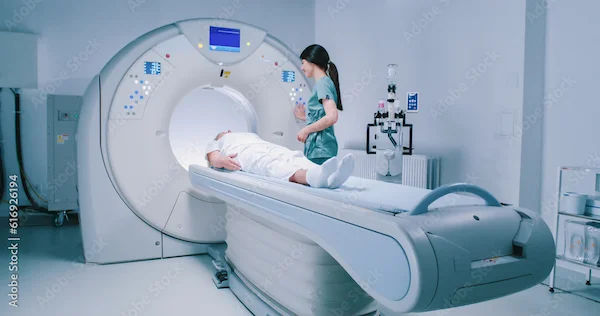Causes of Dizziness and Possible Solutions
Learn about the common causes of dizziness and explore possible solutions, treatments, and lifestyle tips to manage balance issues and improve well-being.


Dizziness is a common sensation that many people experience at some point in their lives. It can range from a mild, fleeting feeling of unsteadiness to severe episodes that disrupt daily life. If you’ve ever felt lightheaded, off-balance, or as if the room is spinning, you’re not alone. In this article, we’ll explore the possible causes of dizziness and what you can do to manage or prevent it.
What is Dizziness?
Dizziness is a broad term that describes various sensations, including:
- Lightheadedness – Feeling faint or as if you might pass out.
- Vertigo – A spinning sensation, where you or your surroundings seem to move.
- Unsteadiness – Difficulty maintaining balance.
- General disorientation – Feeling spaced out or disconnected.
While dizziness itself isn’t usually a serious condition, it can sometimes signal an underlying health issue that needs attention.
Consult a Top Specialist
Common Causes of Dizziness
Below are a few common causes of dizziness,
1. Inner Ear Problems
The inner ear plays a crucial role in balance. Conditions affecting it can lead to dizziness, especially vertigo. Common inner ear issues include:
- Benign Paroxysmal Positional Vertigo (BPPV) – Tiny calcium crystals in the ear become dislodged, causing brief but intense spinning sensations when moving your head.
- Meniere’s Disease – A buildup of fluid in the inner ear leads to vertigo, hearing loss, and ringing in the ears (tinnitus).
- Labyrinthitis or Vestibular Neuritis – Infections or inflammation in the inner ear can cause sudden vertigo, often with nausea or hearing changes.
2. Low Blood Pressure (Hypotension)
A sudden drop in blood pressure—especially when standing up (orthostatic hypotension)—can cause lightheadedness or fainting. Dehydration, heart problems, or certain medications may contribute to this.
3. Dehydration or Low Blood Sugar
Not drinking enough water, excessive sweating, or skipping meals can lead to dizziness. Low blood sugar (hypoglycemia) is common in people with diabetes but can also happen if you haven’t eaten for a long time.
4. Anxiety or Stress
Panic attacks and chronic anxiety can trigger dizziness, often accompanied by rapid breathing, sweating, or a racing heart.
5. Medications
Some medications, including blood pressure drugs, antidepressants, sedatives, and pain relievers, list dizziness as a side effect.
6. Anemia
Low iron levels reduce oxygen supply to the brain, leading to fatigue and dizziness.
7. Migraines
Vestibular migraines can cause dizziness even without a headache.
8. Heart or Circulation Problems
Conditions like arrhythmia (irregular heartbeat), poor circulation, or heart disease can reduce blood flow to the brain, causing dizziness.
When to See a Doctor
While occasional dizziness is usually harmless, seek medical help if you experience:
- Frequent or severe dizziness
- Dizziness with chest pain, fainting, or severe headache
- Sudden hearing loss or vision changes
- Difficulty speaking, weakness, or numbness (signs of a stroke)
- Dizziness after a head injury
If dizziness interferes with daily life, consulting a doctor can help identify the cause and appropriate treatment.
Possible Solutions and Management Tips
Below are a few possible solutions and management strategies,
1. Stay Hydrated and Eat Regularly
- Drink enough water throughout the day.
- Avoid skipping meals; eat small, balanced meals to maintain blood sugar levels.
2. Move Slowly
If you experience dizziness when standing up, rise slowly from sitting or lying positions.
3. Manage Stress and Anxiety
- Practice deep breathing, meditation, or yoga.
- Seek therapy or counseling if anxiety is a persistent issue.
4. Exercises for Vertigo (Epley Maneuver)
If BPPV is the cause, specific head movements (like the Epley maneuver) can help reposition dislodged ear crystals. A doctor or physiotherapist can guide you.
5. Limit Caffeine, Alcohol, and Salt
- Excess salt can worsen Meniere’s disease.
- Alcohol and caffeine can dehydrate you and trigger dizziness.
6. Check Medications
If you suspect a medication is causing dizziness, consult your doctor—they may adjust the dose or switch prescriptions.
7. Improve Sleep and Avoid Fatigue
Lack of sleep can worsen dizziness, so aim for 7-8 hours of restful sleep.
8. Use Support When Needed
If you feel unsteady, use a cane or hold onto stable objects to prevent falls.
When to Consider Medical Tests
If dizziness persists, your doctor may recommend:
- Blood tests (for anemia, blood sugar, or infections)
- Hearing or balance tests (for inner ear issues)
- Heart monitoring (ECG or Holter monitor)
- MRI or CT scans (if neurological causes are suspected)
Get Your Health Assessed
Final Thoughts
Dizziness can be unsettling, but understanding its causes helps in managing it effectively. Simple lifestyle changes like staying hydrated, eating well, and managing stress can make a big difference. However, if dizziness is frequent or severe, don’t hesitate to seek medical advice. Early diagnosis and treatment can help you regain balance and improve your quality of life.
Consult a Top Specialist
Consult a Top Specialist

Dr. Mohamed Azeem
General Physician/ Internal Medicine Specialist
2 Years • MBBS,MD(Internal Medicine) CCEBDM
Karaikudi
Apollo Hospitals Karaikudi, Karaikudi

Dr. Anand Ravi
General Physician
2 Years • MBBS
Bengaluru
PRESTIGE SHANTHINIKETAN - SOCIETY CLINIC, Bengaluru

Dr Syed Mateen Pasha
General Physician
2 Years • MBBS
Bengaluru
PRESTIGE SHANTHINIKETAN - SOCIETY CLINIC, Bengaluru

Dr. Syed Ismail Ali
General Practitioner
7 Years • MBBS
Hyderabad
Apollo 24|7 Clinic, Hyderabad

Dr. Sandhya Chandel
General Physician/ Internal Medicine Specialist
16 Years • MBBS, MD (Int. Med.), IDCCM
Bilaspur
Apollo Hospitals Seepat Road, Bilaspur
(100+ Patients)
Consult a Top Specialist

Dr. Mohamed Azeem
General Physician/ Internal Medicine Specialist
2 Years • MBBS,MD(Internal Medicine) CCEBDM
Karaikudi
Apollo Hospitals Karaikudi, Karaikudi

Dr. Anand Ravi
General Physician
2 Years • MBBS
Bengaluru
PRESTIGE SHANTHINIKETAN - SOCIETY CLINIC, Bengaluru

Dr Syed Mateen Pasha
General Physician
2 Years • MBBS
Bengaluru
PRESTIGE SHANTHINIKETAN - SOCIETY CLINIC, Bengaluru

Dr. Syed Ismail Ali
General Practitioner
7 Years • MBBS
Hyderabad
Apollo 24|7 Clinic, Hyderabad

Dr. Sandhya Chandel
General Physician/ Internal Medicine Specialist
16 Years • MBBS, MD (Int. Med.), IDCCM
Bilaspur
Apollo Hospitals Seepat Road, Bilaspur
(100+ Patients)





